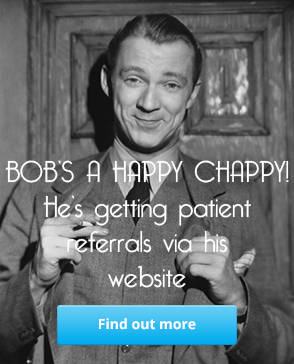Innovation In Audiology: Buying A Hearing Aid
-
By Steve Claridge on 21st July 2015

This is the first part of our "Innovation In Audiology: The Patient's Perspective" series. Go here to read all of the series and get some background on why we are writing this.
I read with interest an article on Hearing Health Matters called "Why Purchasing Hearing Aids Is Like Buying A Wedding Dress" - I agree with a lot of the comparisons that were made but I don't think those comparisons exist for the right reasons and I don't think they will exist in the shifting, innovating hearing loss domain. For example, "A wedding dress costs you (the consumer or patient) a lot of money, like hearing aids." - that is true today but it shouldn't be true, prices are high mostly due to the product/service lock-in that is the current supply model (more of this later). Another comparison, "You are likely to spend a lot of time shopping for them." - I'm not convinced that is true, today's consumer wants to purchase at a click of a button and they want a package dropped on their doorstep ASAP, that may or may not be possible in our domain but typical consumers do not want to spend an age buying something, they want minimum of fuss and a quick purchase. Last comparison I'm going to pick on, "This is a major event in your life. After all, how often do you get married or get your first hearing aid?" - how many people keep an album of pictures from their audiology visit? How many people keep items from their practice visit in a box at the back of the cupboard? How many people invite all their family and friends to the fitting of their new aids? Buying a hearing aid is nothing like getting married and it should not be seen like that.
Online and off
The Web usually plays a central part in the disruption of any industry. Amazon and eBooks upsetting publishing, Spotify and music streaming hitting album sales hard and Netflix et al doing the same for the movie industry. The Web is big business these days and there is a large startup culture that is looking at long-established business models and asking, "Can we do this simpler, cheaper or better using the Web"? The examples of Amazon, Spotify and Netflix are the big names but smaller domains are seeing the same thing, you can do your business accounts via a website instead of hiring an accountant, you can book a holiday package online instead of going to the travel agent, and so on, many industries are having their established ways of working uprooted by the ease-of-use and lower barrier to entry of the Web. Our domain is no different. There are already a good number of companies who operate exclusively on the Web, typically selling pre-programmed hearing aids (to common hearing loss profiles), aids that are programmed to an audiogram or aids that are supplied with some facility to allow remote programming by an audiologist. I know there are arguments as to why these do not provide optimal outcomes for patients, and I'm not arguing with those, but these Web-based services are providing people with solutions to their problems: they are allowing them to hear better - they may not be absolutely perfectly programmed but they are providing a good enough sound for people to get real benefit from them.
We are also seeing an ever increasing number of PSAPs being sold online. There are some established players already, like SoundHawk, and I'm seeing increasing number of crowd-funded projects springing up to try and address hearing loss.
We cannot deny that the Web is shaking up the hearing industry, it has already begun to. To argue that buying a hearing aid should be like buying a wedding dress is looking at the status quo, the long-established way of fitting and not thinking towards the future. People do want better hearing, they want it right now and in the simplest way possible, they don't want to have to work hard for it, they want you to make it quick, easy and painless for them.
I think real innovation in hearing aid fitting will come from making the process of a perfect, scientific and professional fitting invisible to the patient. I want to be able to buy cutting-edge hearing aids online, to get them delivered to my door and for them to be working optimally for my hearing loss. I'd like to be able to instantly try out different models and different "sound profiles" (I'm thinking of the difference in the way a Starkey sounds to a Widex).
A real problem for me has always been trying to determine whether I should buy the $2000 hearing aid or the $3000 one, I'm told the more expensive one will be better, but how much better and in what ways? That is a difficult question to answer and quantify. I would like to be able to instantly try out the different models side-by-side and compare their sound quality and features so that I can make an informed decision on which aid is working best for me. Today I can get a trial pair of $2000 aids and see how they go for a month, I can then get the $3000 pair and see how they go, this is OK but it is very hard to compare the two because you very quickly forget how the first one sounded - to make a truly informed decision I need to be able to flick between the options instantly and compare them at that very second.
Product And Service
Bundling the the hearing aid unit(s) and the audiologists/RHADs time into one fixed price is the common pricing model and I think this needs to be reconsidered. As I've said above, my belief is that the future of audiology sales is going to be simple, quick and almost effortless for the consumer, it is also going to be cheaper per-unit. I cannot think of any other domain where a customer pays a fixed price for someone's time regardless of whether they use it or not. I would like to see a future where I can buy just the hearing aid and purchase the expert's time as and when I need it. Maybe a per-month subscription fee would work? The cheaper subscription covers the hearing aid unit(s), software updates and related Web-based services and the more expensive subscription offers expert advice, programming and rehabilitation when required. That works differently in my mind, the old model is, "This hearing aid costs $5000, you can pay in monthly instalments if you wish", the new model could be, "This hearing aid is $50 per month for the basic plan and $150 for the expert plan, you can switch between plans whenever you need to". The second one sounds more like the common subscription model that most Web-based services use these days and it also makes a hearing aid fee like less of a high-priced item that it out of many people's reach.
In Summary
People's attention spans get shorter all the time, everyone complains about being too busy and switched on all the time. People want quick and easy products and they want them right now. The audiology field needs to innovate to work out how to sell patients an almost instant hearing solution but still give them the fine-tuned expert advice, knowledge and care that they need to get the most from their hearing.



